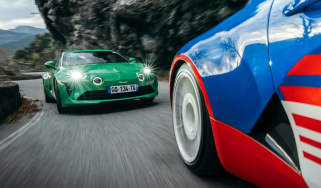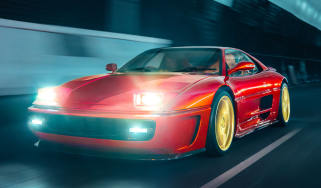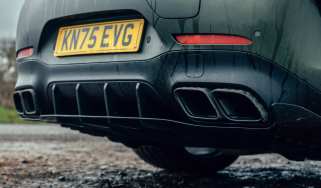2010s motorsport: The rise of hybrid and Hamilton and the fall of Audi
Aside from the titanic rise of Mercedes in F1 and the growing role of hybrid powertrains, men named Seb largely dominateed
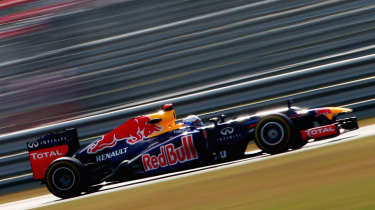
If you wanted to win a world title in the 2010s it helped immensely if your name was Seb. Between Vettel, Loeb and Ogier, no fewer than 13 drivers’ championships were claimed across Formula 1 and the World Rally Championship, the young German ace taking four F1 titles on the bounce between 2010 and 2013, while the two French rally sensations took an extraordinary nine WRC titles between them.
Such dominance belied extremely close competition in both categories, none of it closer than the battle between teammates Vettel (pictured) and Mark Webber, who extracted the most from themselves and Adrian Newey’s string of increasingly untouchable Renault-powered Red Bulls. The pair’s famous race-ending collision in the Turkish Grand Prix summed up the intensity of their rivalry in the decade-opening season, but 2010 also saw McLaren’s Lewis Hamilton and Jenson Button – reigning champion after his brilliant 2009 season with Brawn GP – locking horns.
With Fernando Alonso newly ensconced at Ferrari and Michael Schumacher coming out of retirement to spearhead the new Mercedes F1 team effort, it was a truly epochal season. Somewhat against expectation, it was Vettel who prevailed, his fine win in a topsy-turvy Abu Dhabi season finale propelling him from third going into the race weekend to a very slim points lead for the first time all year. Meanwhile Webber and Alonso endured races to forget.
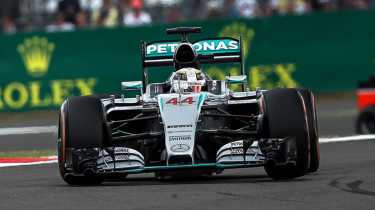
If 2011 was all about Vettel with 11 wins and a crushing second title, 2012 was another season-long brawl with Alonso, who finished just three points shy of securing his own third title. Then 2013 saw Vettel’s relations with Webber hit a new low early in the season after the ‘Multi 21’ controversy when the German disobeyed team orders to hold station behind Webber and stole a win in Malaysia, but his 13 season wins saw him romp to his fourth title in as many years.
The following year saw F1 bid farewell to its V8 screamers and embrace a brave new era of 1.6-litre turbocharged V6 hybrid power units. After a solid but unremarkable foundational spell running V8s, Mercedes stole a march over its rivals with the switch to new powertrains.
Hamilton, who had made his shock move to Mercedes in 2013 after overtures from Niki Lauda and Ross Brawn, was vindicated in the best possible way. His 2014 championship win would be the start of an incredible run of success. One that would see him become the most successful driver in the history of the sport and Mercedes the standout team of the early hybrid era.
Fans of F1 trivia will enjoy the 2010s for marking the sole career win for crash-prone Venezuelan Pastor Maldonado, when he drove out of his skin to win the Spanish GP for Williams in 2012. It was the team’s first win since 2004 and remains their last to date. Also of note was the debut in Red Bull’s junior team, Toro Rosso, of a teenager by the name of Max Verstappen.
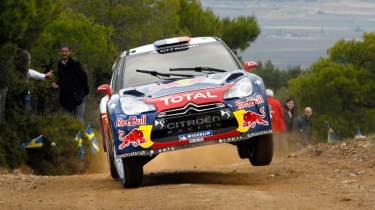
Meanwhile, in the WRC, Sebs Loeb and Ogier locked-out the Drivers’ Championship from 2010 to 2018. The former retired at the end of the 2012 season, but not before completing a final hat-trick of drivers’ titles in 2010, ’11 and ’12 in his trusty C4 and DS3 Citroëns. Ogier – latterly Loeb’s understudy at Citroën – moved to the new factory VW team for the 2013 season.
Together with his co-driver Julien Ingrassia, the pair proved nigh unbeatable in the Polo WRC and secured four back-to-back drivers’ and manufacturers’ titles between 2013 and 2016. Were it not for VW’s shock withdrawal from the WRC at the end of 2016 that run could well have continued.
Instead, Ogier moved to Ford’s M-Sport squad for 2017. With new regulations increasing engine power and downforce and introducing electronically controlled differentials, the cars were faster than ever. Remarkably Ogier continued his winning streak, taking the 2017 and 2018 titles in the M-Sport Fiesta WRC against formidable opposition from Citroën, Hyundai and Toyota.
Only in the final year of the decade would a non-French, non-Seb take the WRC title, when Estonian Ott Tänak, driving a Yaris for the factory Toyota team, secured his first WRC Drivers’ Championship with six victories across tarmac, gravel and snow surfaces.
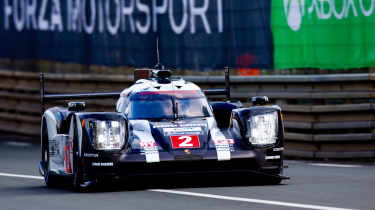
Away from F1 and the WRC, the 2010s saw a revolution in endurance racing with the formation of the World Endurance Championship (WEC) in 2012, unifying the previously disjointed endurance racing scene. Crucially the new championship incorporated Le Mans, creating a true jewel in the crown.
Split between LMP1 and LMP2 prototype classes along with two production-based GTE classes for Pro and Am drivers, WEC also embraced hybrid technology for its top LMP1 class. Long the dominant force in endurance racing, and especially at Le Mans, Audi continued to enjoy a period of dominance in the early years of WEC with Audi Sport Team Joest taking championship wins in 2012, 2013 and 2014 with its R18 e-tron quattro.
Porsche took the WEC title with its 919 Hybrid in 2015, while Toyota Gazoo Racing prevailed in 2016 until the end of the decade, enjoying increasing dominance after Audi and Porsche teams withdrew from the LMP1 class in the wake of the Dieselgate scandal, which had proved particularly damaging for the Volkswagen group.
Le Mans 24 Hours results for the decade paint a slightly different picture. Audi’s pair of pre-WEC era wins were bolstered by a hat-trick in 2012, ’13 and ’14, but Porsche fought back to score its own hat-trick between 2015 and 2017. Toyota then took wins in 2018 and 2019 with its TS050 Hybrid and the help of a certain Fernando Alonso, who had taken a sabbatical from F1 to tackle the divergent challenges of WEC and the Indy 500.



